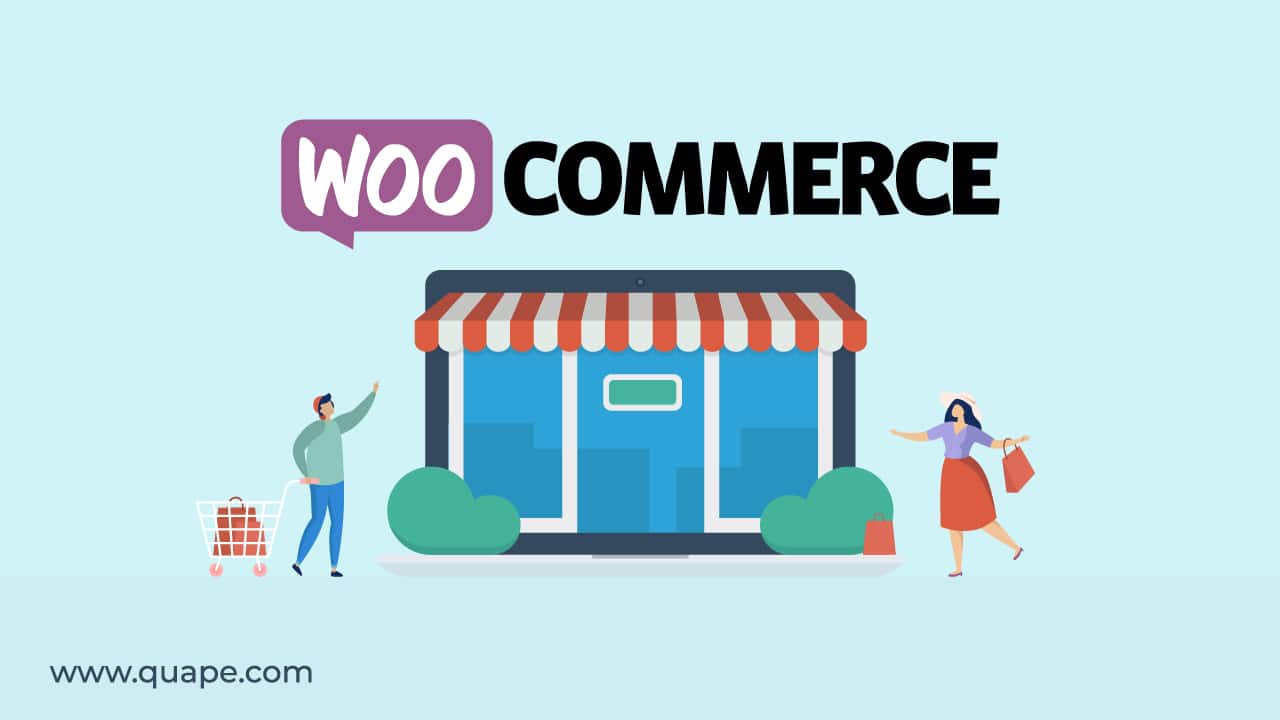
Should you pick this popular WordPress eCommerce plugin?
Have you heard about WooCommerce? From a trust resource, WooCommerce is the most popular platform for online shopping website, and also have the most developers work on it.
- Can WordPress handle eCommerce?
- Will it scale?
- Isn’t WordPress just for blogs?
- Even though WooCommerce is popular, isn’t it super expensive?
These questions and more all beg the same question: should they, as they plan their new site, strongly consider this popular WordPress eCommerce plugin?
My answer is always the same: that I think WooCommerce is perfectly legitimate platform to build an eCommerce site on.
That’s when the follow-up question always comes – because the question is never, “should I use WooCommerce?” but is much closer to, “why should I choose WooCommerce?”
Let’s see if we can agree on some strong reasons to consider the WooCommerce platform.
Why choose WooCommerce?
EVERYONE IS DOING IT
I know. This is the worst reason in the world – and I can hear my mom asking me if I would jump off a cliff simply because my friends were doing it. And as much as I want to say no, I know I’ve done many things in life simply because I’ve trusted the wisdom of crowds.
While some people debate the validity of the data coming from built with, the thing to note is not the pure numbers but the changes over time. WooCommerce continues to grow dramatically. When you click on “entire internet”, the data says that 42% of all the stores online are running WooCommerce.
That’s why it’s the first logical reason to strongly consider it. But it’s not the only reason – even though it creates the other reasons…
FINDING A WOOCOMMERCE DEVELOPER IS EASIER
The nature of WooCommerce’s growth is such that today a lot of people have experience building a WooCommerce site. Not all of them have the same experience. But they have recent experience building a store with WooCommerce.
That’s not necessarily the same when it comes to other eCommerce plugins for WordPress or even other open source solutions.
On Upwork, for example, when you look for people with more than 100 hours of Volusion experience in the last 6 months, the count of freelance developers available is 450. The same criteria for WooCommerce give you more than 3,000.
EXPERTS ARE EASIER TO FIND AS WELL
When you look for developers with much more experience (1000+ hours) who are currently active in WooCommerce development work you find thousands of developers available. Depending on which advanced filters you use, you’ll find 2-3x more WooCommerce experts than Volusion or Big Commerce.
And that’s on sites like Upwork. If you’re looking for WooCommerce developers, you’re better off starting at Codeable.io where you’ll find even more developers waiting. And with those folks, they can help you build all kinds of sites…all that generate online revenue.
WOOCOMMERCE KNOWS ALL E-COMMERCE SITES ARE NOT ALIKE
When you start talking to people about how they want to make money online, they’re not all selling t-shirts. Some are selling subscription services. Others sell physical merchandise. Some sell digital access to media or downloads. Others run membership sites or run online courses.
WooCommerce supports all of them. Every single option. And that’s not true with every other solution out there. Many of the older platforms are built for physical products with variations (like t-shirts). They plan and expect you to ship something. But if you ask them to protect pages of content, you’re in trouble.
CONTENT DRIVES SALES
I know this sounds like a random reason that doesn’t line up with anything, but if you’re a person who runs a store, you know how important content is to your site. You have to write articles way more than you ever thought would be required because stories sell products. And that means you need a blog, or a content site.
Unfortunately, most of the eCommerce platforms out there aren’t optimized for the content. So you end up creating a separate and slightly disconnected site with content, hoping that you can do some navigational magic to get people jumping between content and commerce.
But it doesn’t work well. One client I worked with a couple of years ago lost 60% of his traffic between the content site and the eCommerce site simply because things slowed down, sometimes didn’t connect, left people disoriented jumping between sites with differing navigation.
DID I MENTION ALL OF THE FEATURES AND INTEGRATIONS?
When you start looking at every eCommerce platform out there, and consider whether it makes sense to choose WooCommerce, you’ll soon discover that everyone and their brother has integrated with it. Everyone has created a payment gateway for it. Everyone has already determined (because of those numbers above) that they must make sure their products or services work well with it.
That’s the benefit of being the big player in the market.
But it’s not just about integrations. It’s also about features. Features that you can choose to add or not add, based on the needs of your site.
I’ve worked on WooCommerce sites that needed 3 extensions and others than needed three times that. I’ve worked on WooCommerce sites that only used custom extensions that were relatively easy to write and others where the features could be bought straight off the shelf.
The total number of extensions available for WooCommerce is hard to calculate but it’s much larger than many of the other platforms out there.
IT CAN SCALE IF YOU KNOW WHAT YOU’RE DOING
Lastly, what I can tell you is that WooCommerce can scale. It will take some work. But the good news is that there are people out there who have done it. Personally, I worked with a team to get a WooCommerce site to scale to 2,000 add-to-cart events per minute. I’m pretty sure that qualifies as a high-performing site that needed to scale past what most people need or want.
Shouldn’t you look at hosted platforms?
Of course, you should. It’s silly not to look at platforms like Shopify or Big Commerce.
Shopify has 70 payment gateways. Big Commerce has about half that. If payment gateways are your thing, and they have what you need, then you’re set. If not, you can count on WooCommerce and more than 140 payment gateways to help you.
Search Engine Optimization (SEO) is another one of those things that are worth considering when looking at hosted platforms. While the upside can potentially be speed and performance (especially if you’re using a poor-performing WordPress hosting service), the ability to really dig into keyword optimization can be limited, depending on which hosted platform you’re looking at. And all of them don’t offer the full extent of options that WooCommerce does, simply because it sits atop WordPress – which was built for this.
You should totally look at hosted platforms. Just do it with a clear sense of what you need or want from your site. As that will likely help you determine which platform is right for you.
When should you choose WooCommerce?
While the answer can always be, “it depends,” let me see if I can give you at least a few quick guides for when you should choose WooCommerce.
You’re broke and want to do everything by yourself. Let’s face it, some people out there want to do something as cheap as possible. And in that case, WooCommerce is free. Even the Stripe or Paypal gateway is free. So you can get going for free and only spend your time configuring your site without paying for anything else. You won’t get all the fancy bells and whistles from the premium extensions, but you can get going for free.
You want to control everything. Some people don’t stress over the funds, but they do want tight control over every aspect of their site. WooCommerce gives this to you because you can pick every feature to include, every setting to configure, and the exact details of your hosting approach.
You have unique needs for your site. When you want something unique – whether you have to custom develop a feature or simply have a situation that isn’t common – WooCommerce gives you the best chance of getting it. It may cost you a bit, but there aren’t many other options you can consider if you’re unique and want a specific experience for your shoppers.
You don’t want to reinvent the wheel. There are thousands of themes and plugins for WooCommerce that you can choose from – that have already been tested by tons of other sites. When you don’t feel like being a guinea pig with your online store software, WooCommerce is pretty much the best option you have.
You value and care about your site’s infrastructure. This isn’t everyone, but if you’re not the “hands-off” kind of person who just signs up for something and lets other people manage your site, then the ability to pick your own hosting company, your own support arrangement, and your own team to manage the development of your store is a big reason for you to choose WooCommerce.
You want to run an online course, membership and physical product store – all from one platform. The last reason is maybe the most important. When you have a lot you want to do and plan to do, then making sure your platform will support all your future plans is critical. And that’s when choosing WooCommerce really makes the most sense.
Hopefully, one of these situations describes where you’re at and helps you make your choice.






